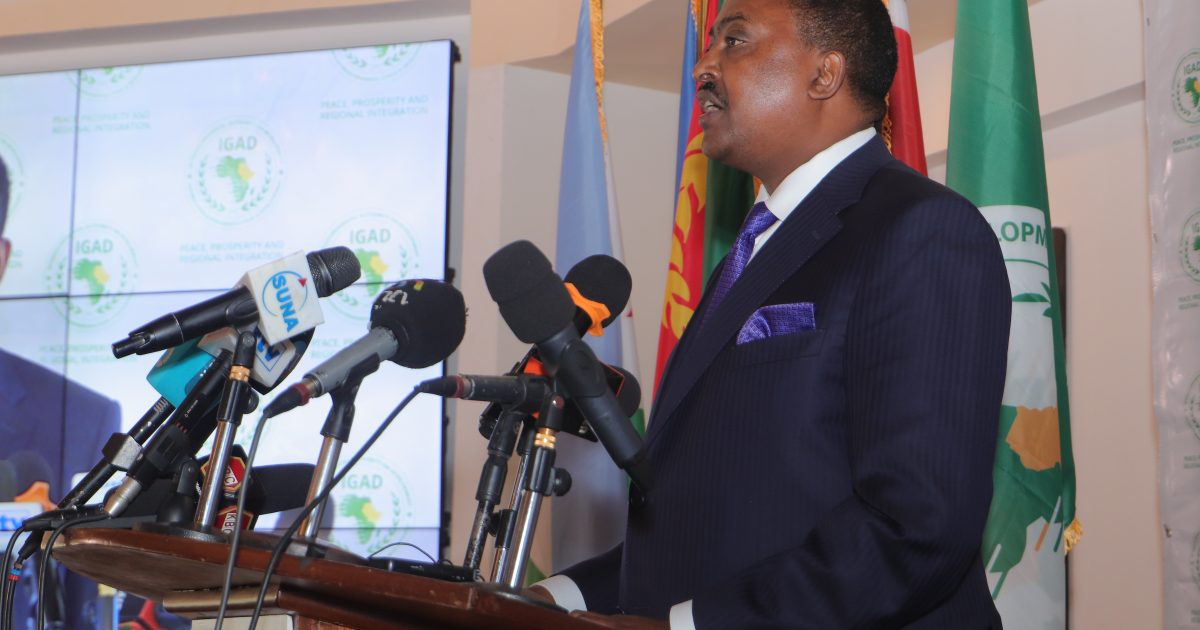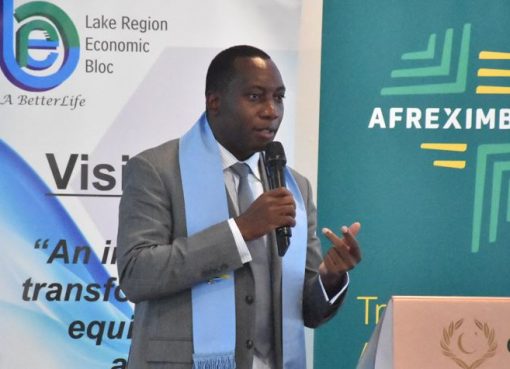Three Kenyans were among 12 prominent personalities conferred to be members of the Intergovernmental Authority on Development (IGAD) Council of Eminent Persons.
The three Major General (Rtd) John Selli who is the chairman of Kenya Council of Elders and two former top athletes Paul Tergat and Catherine Ndereba were unveiled by the Igad council in Mombasa during the just concluded Security Sector Forum on Regional Cooperation and Coordination against Transitional Security Threats to spearhead peace and integration within the region.
Others were Olympic Gold medalist Haile Gabresilassie, Deratu Tulu and Prof. Ahmed Zakira, a renowned scholar from Ethiopia. From Somalia the list included Ugas Ali Ugas, a respected clan elder and Professor Idil Osman, a professor of communication and regional peace advocate.
Ambassador Deng’ Alier Deng’ Ruai and reverend Dr. Gabriel Gai Riam from South Sudan, former Djibouti Minister of Health Kassim Issak Osman and his counterpart Aicha Mohamed Robleh were also conferred with the honours to be part of the council.
Meanwhile, about 36.1 million people in the IGAD region have been affected by the current drought situation and are facing heightened levels of food insecurity.
The drought is also said to have wiped out an estimated 4.2 million heads of livestock, shattering the livelihoods of entire pastoralist communities and crippling them economically across the region.
This has been described as a devastating challenge to the continent given that the region hosts almost 50 per cent of the livestock in sub-Saharan Africa and livestock accounts for almost 15 percent of the region’s GDP.
In response to these extreme weather challenges, the Intergovernmental Authority on Development (IGAD) has proposed to undertake a number of proactive measures beginning with convening a regional climate outlook forum to be held on February 20, 2023.
“This forum will be part of our continuing effort to remain the most climate-aware region on the continent and enhance the ability of our member states to collect and process data for disaster forecasting, in order to reduce the gap between early warning and early action,” said IGAD Executive Secretary, Workneh Gebeyehu.
“Already, we have noted some evidence of the success of this approach. In 2021 and 2022, we noted with some satisfaction that our initiative to ‘take the data to the people’ raised the warning in good time,” Gebeyehu said.
He described 2020 and 2021 as the most challenging years in the history of IGAD, saying the period was one of the hottest, driest and most conflict-affected periods in recent memory.
By Mohamed Hassan




